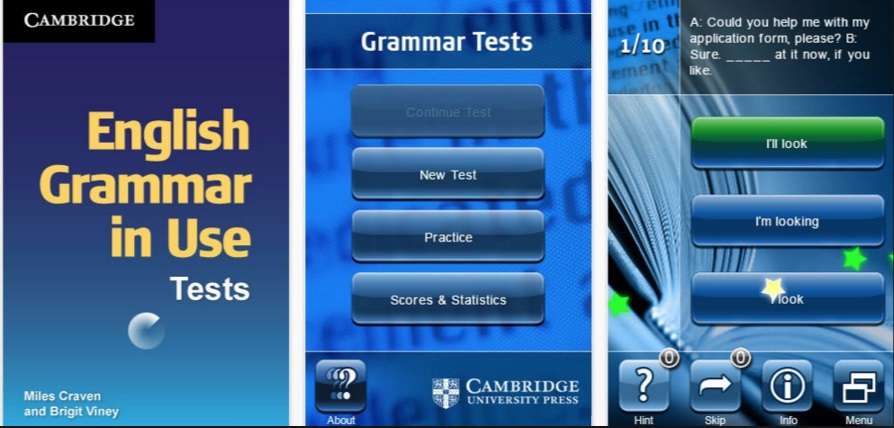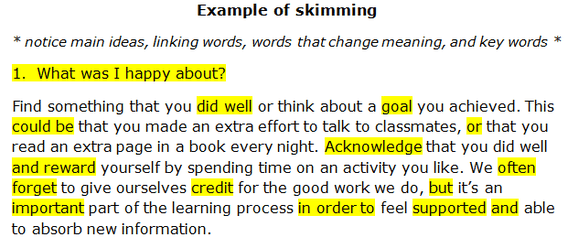Text from earlier blog post 'Teacher I'm Worried About Repeating!'
As the picture above shows, skimming means you read the first sentence then go quickly through each paragraph, noticing main ideas, any adverbs, adjectives or links that signal a change in direction in the text, and key terms (words that are about the main topic or synonyms that get used often in the paragraph).
Conversely, scanning is like being a detective looking for clues - use your eye to quickly find words that signal the answer is near then look around there more carefully for the answer itself.
Skip over words you don’t know
They usually aren’t important. If they are, you can guess what they mean by using the context around the word. You're being tested on your reading comprehension ability, and although this involves a minimum amount of vocabulary knowledge, ultimately you can work out a lot of reading questions by thinking carefully even if you don't understand all the words. If you really struggle to understand most vocabulary, Read our article on improving academic vocabulary and start practising!
Try to focus on understanding meaning, not individual words
This is an important reading skill in any situation. While individual words definitely help you find specific information, you have to understand what you're reading before you can understand details or find answers to questions.
Practice makes perfect (enough)!
At the end of the day, you need to do extra practice to improve at any skill. Get it from your teachers or from online. If you want to perform well under pressure, add a time limit similar to what you might experience in the exam you're preparing for. When you're done, take your time analysing why you got answers wrong to figure out how you can improve, and be grateful for your mistakes! As polyglot Steve Kaufmann says, "if you are not making mistakes, you are not trying hard enough to use the language."










